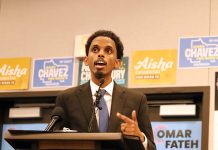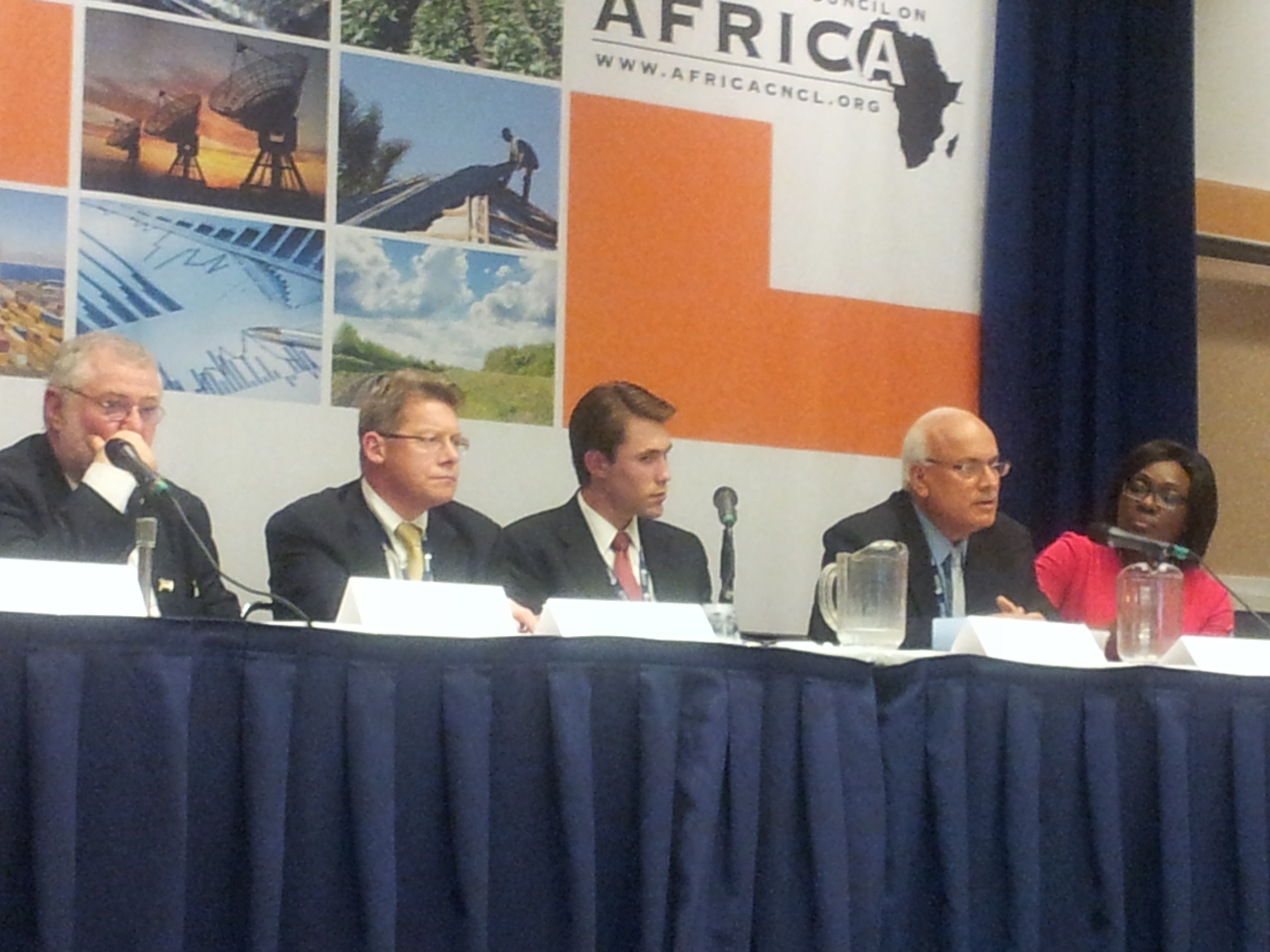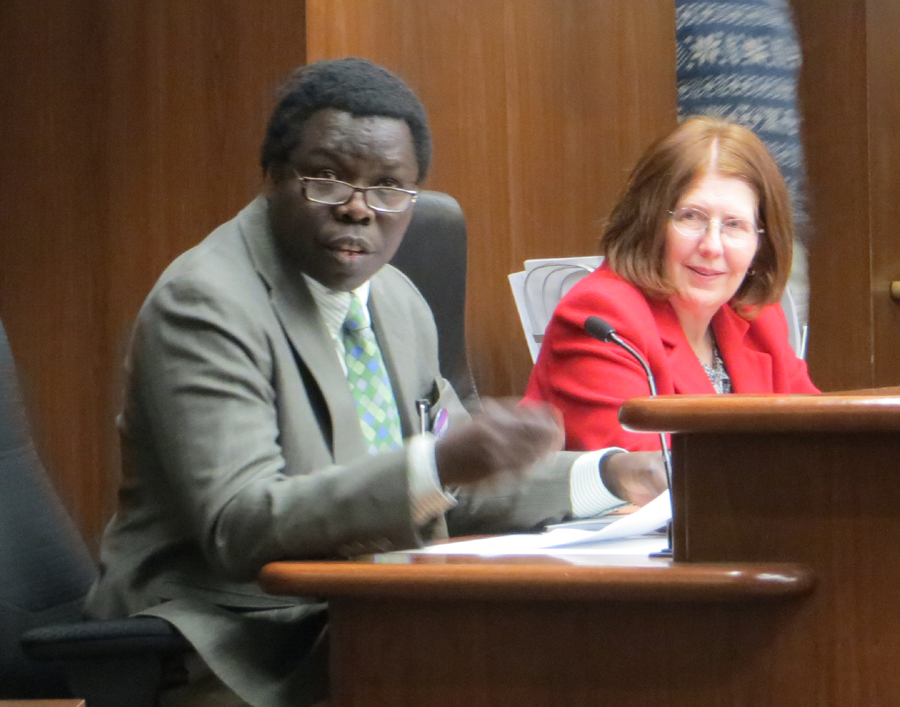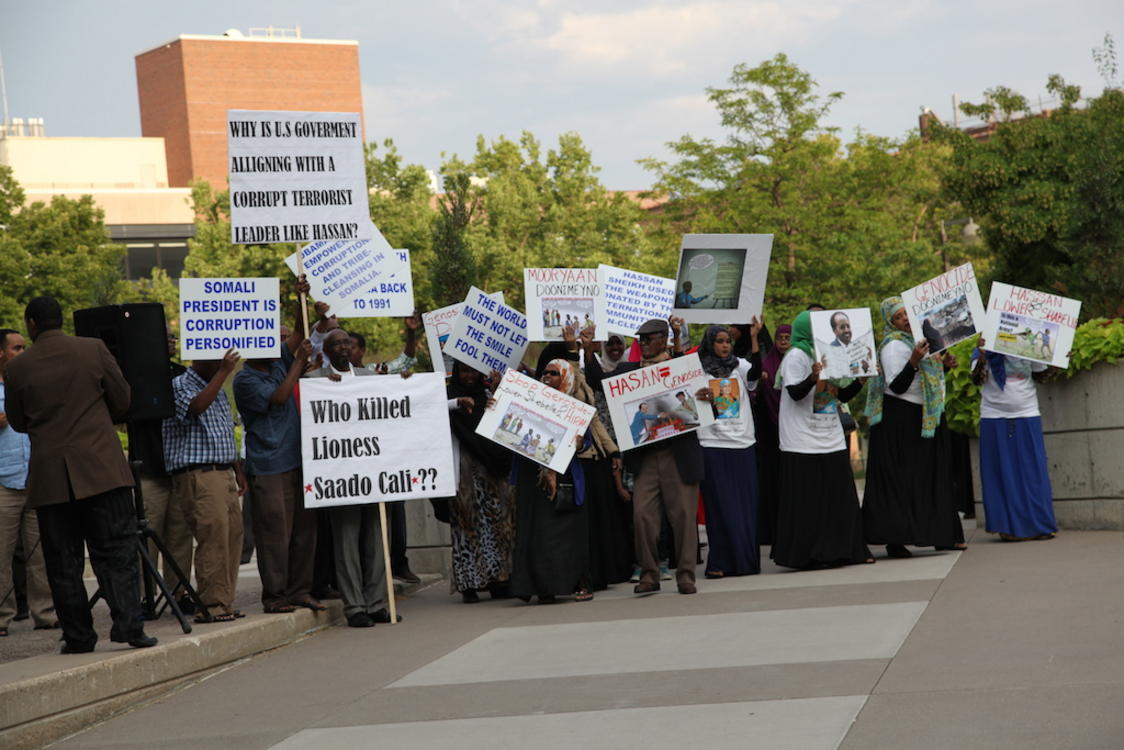
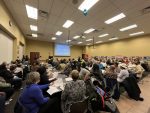
A projected $5.3 billion budget deficit for the 2028-29 biennium overshadowed Minnesota’s current $616 million surplus at a town hall meeting on Tuesday hosted by Minnesota Senate president Bobby Joe Champion and his District 59 House counterparts Rep. Esther Agbaje and Rep. Fue Lee. At the town hall, held at the University of Minnesota Urban Research and Outreach-Engagement Center (UROC), residents and DFL leaders addressed the state’s uncertain financial future.
“The most important thing the legislature has to do this year is pass a balanced budget,” DFL Sen. Bobby Joe Champion said. “We are not like the federal government. We must pass a balanced budget. That’s a constitutional mandate for us.”
While the state enjoys a surplus as it begins the 2026-27 budget cycle, the looming deficit and underlying structural imbalances, where projected spending exceeds revenue, pose significant challenges. These difficulties are compounded by uncertainty surrounding federal funding, which supports a substantial portion of the state budget, particularly for health and human services.
The state’s projected budget woes sparked immediate concern from some attendees. One person asked whether Minnesota could retain its federal tax dollars instead of sending them to Washington, reflecting anxiety about the state’s heavy dependence on federal funding and potential federal policy shifts. Another described the convoluted process of accessing disability services, highlighting the potential impact of budget cuts.
“I fully understand why people are nervous about this,” Senate fiscal analyst Eric Nauman said. “There’s a lot of controversy out in the world right now about what’s happening in Washington.”
Nauman stressed that the legislature would need to consider various “what if” scenarios regarding federal actions and their potential impact on the state budget. He said he did not have inside information on federal plans.
DFL Sen. John Hoffman echoed similar concerns, underscoring the state’s commitment to supporting vulnerable residents, including the elderly, the poor, and those with disabilities. He recalled a meeting more than a decade back, where he and former Senator Jeff Hayden warned of the coming wave of aging Baby Boomers and the growing disparities in access to services among demographic groups. Hoffman criticized the lack of action taken then and stressed the urgency of addressing the looming deficit, urging constituents to share their stories and hold their elected officials accountable.
“We knew 13 years ago, and we told people back then, ‘It’s coming. It’s coming.’ And you know what our government did? We did nothing.”
Sen. Scott Dibble, chair of the Senate Transportation Committee at the State Capitol, voiced concern about federal funding for the proposed $3 billion Blue Line light rail extension to the Northwest suburbs. While the state hopes for half the funding to come from federal sources, Dibble expressed doubt, given the Trump administration’s priorities.
Representatives Esther Agbaje and Fue Lee addressed the threat of federal funding cuts and policy changes, emphasizing their potential impact on Minnesota’s housing programs. Agbaje expressed concern over the Trump administration’s proposed freeze on federal funding and efforts to dismantle diversity, equity, and inclusion programs.
“We need that money to improve lives in Minnesota,” Agbaje said. Federal funds currently make up 33% ($37.8 billion) of the state budget. Agbaje noted the difficulty of planning amid funding uncertainty, saying, “we will have to figure out what we can do with an already small budget in housing.”
She highlighted the state’s commitment to affordable housing, pointing to the success of the first-generation down payment assistance program, which helped more than 4,000 families buy homes. She also discussed a forthcoming state voucher-based housing program, modeled after federal programs like Section 8.
“We know that the situation is difficult, we know that it’s dire,” Agbaje said, adding that local initiatives “can help try to stabilize as much of our population as possible, regardless of what may or may not be coming from the federal government.”
About Mshale Staff


